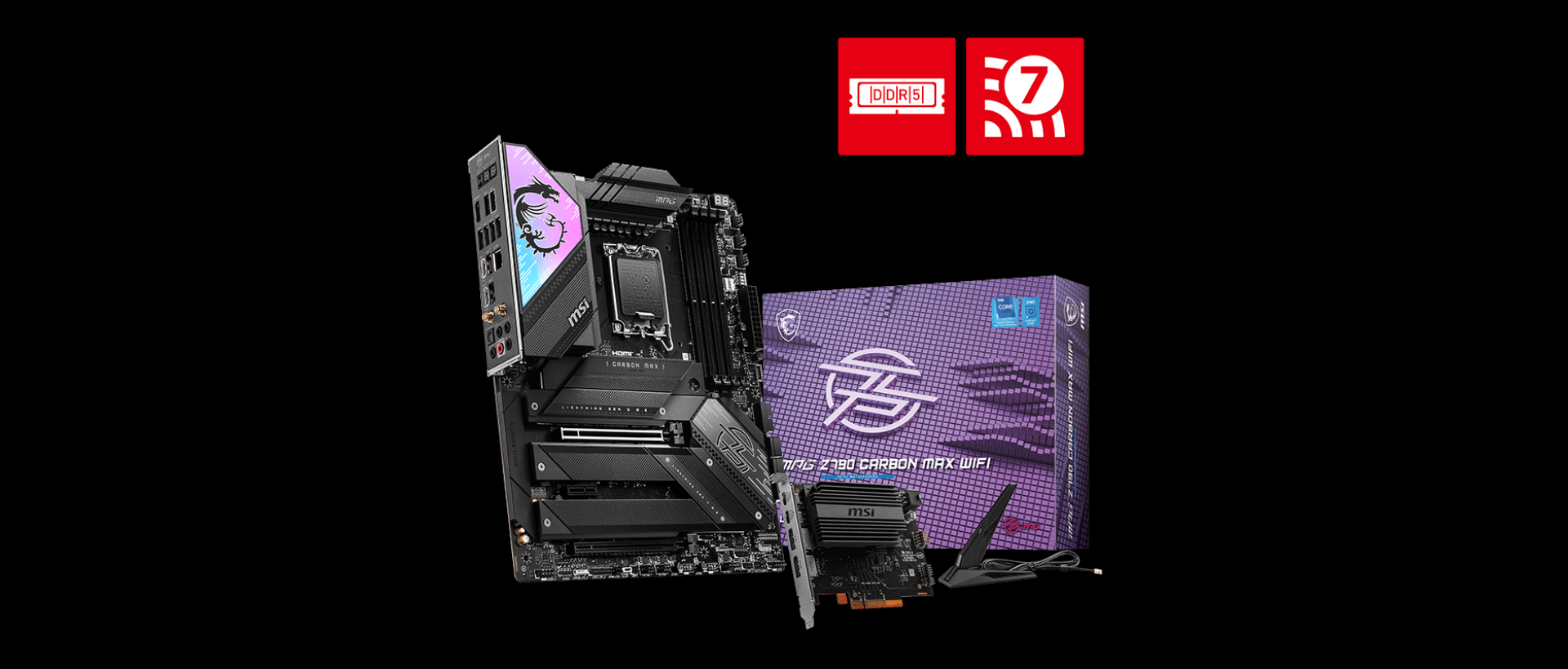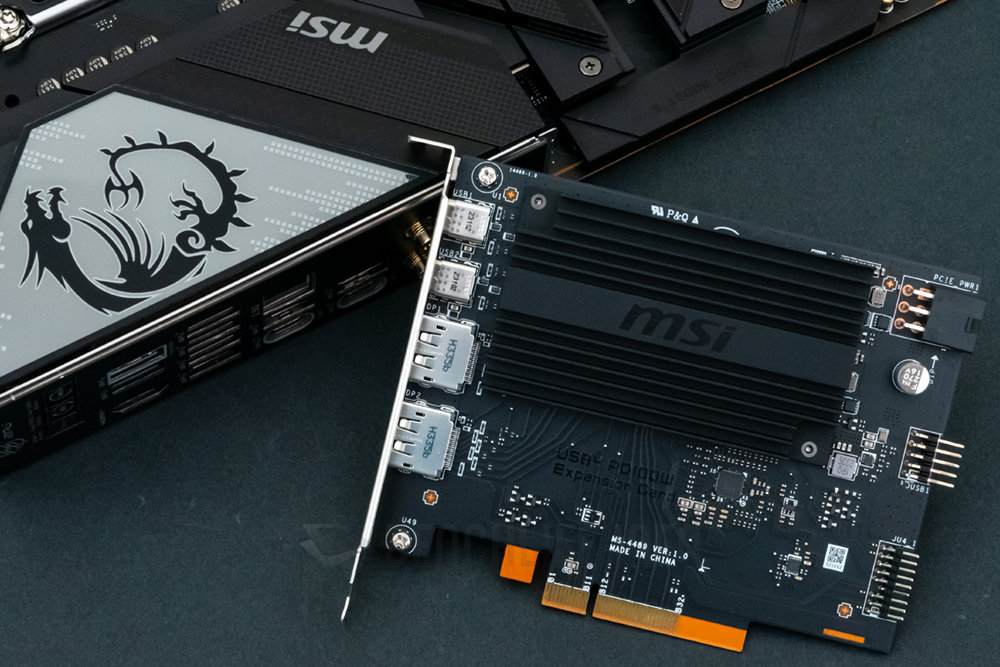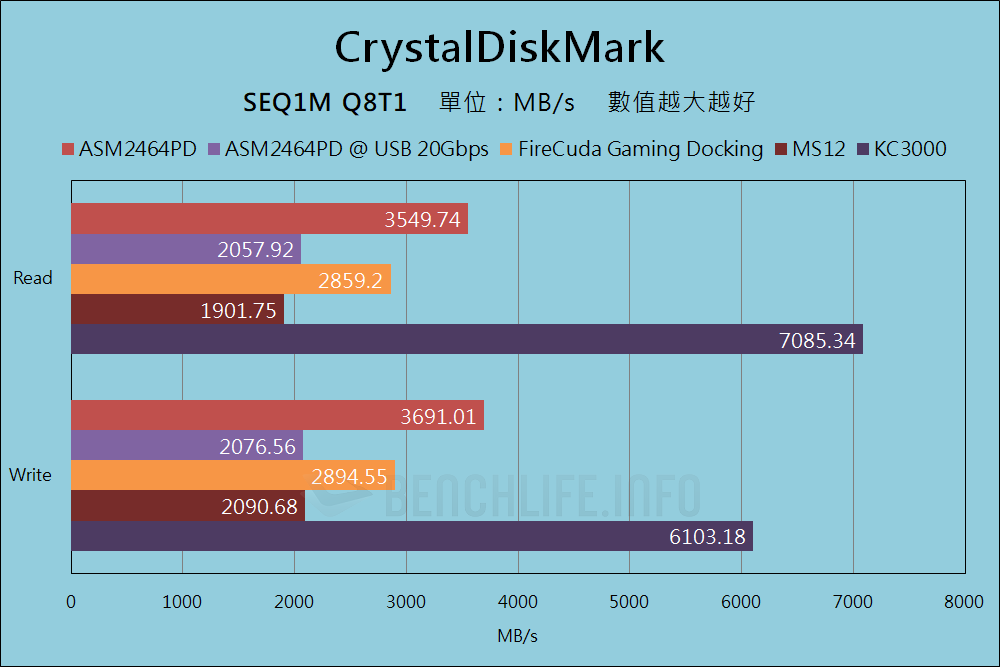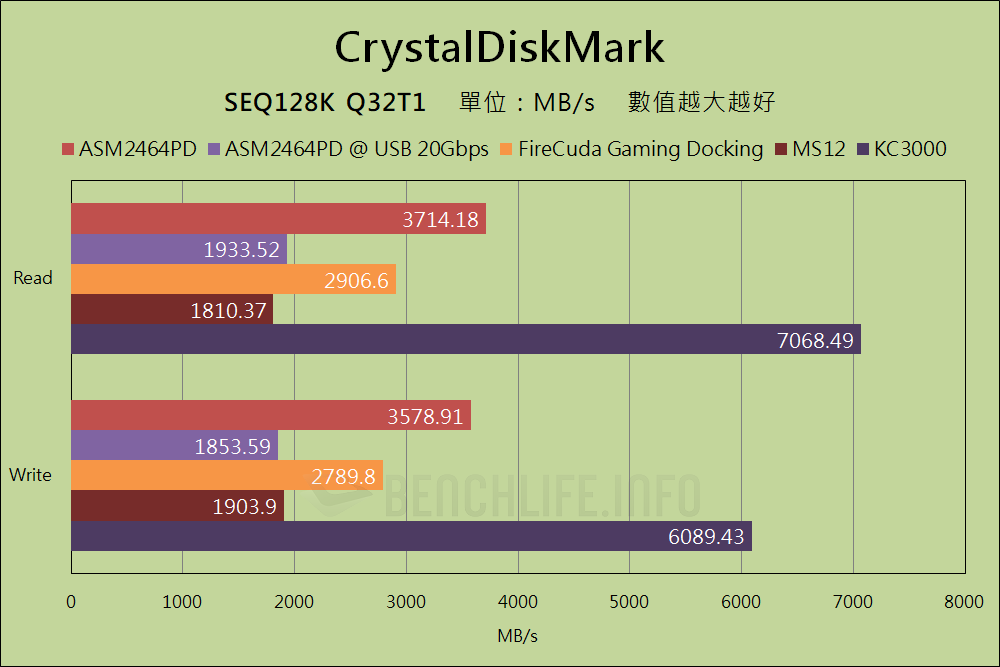MSI Add-on Card hits 3,700 MB/s with USB4 over Thunderbolt 3, has 100W charging
The MS-4489 also uses the ASMedia's first generation USB4 controller supporting 100w output via Type-C and DisplayPort Alt-Mode

The MSI Z790 Carbon Max WIFI motherboard is special because of an included add-on PD1000W (aka MS-4489) PCIe 4.0 x4 card that provides dual USB4 ports, with one port providing a 100W power output. Benchlife received this motherboard, and the included MS-4489 PCIe card to test. The USB4 card delivers higher performance throughput, single cable data, power, and other functions. While USB4 is not a mainstream option enough to see it on the rear I/O panel, we're probably getting there sometime in the future. It is very rare to see such an add-on card provided as a bundle for multiple reasons, including its function and performance.
The card uses an ASMedia ASM4242 main controller complemented by ASM2464PD and ASM2464PDX accessory controllers. The ASMedia ASM4242 Gen 1 controller is designed for the PCIe 4.0 interface, providing data bandwidth up to 64Gbps and supporting PCIe tunneling protocols such as PCIe, USB, DisplayPort, and host interface. The Type-C ports work via USB4 and Thunderbolt3 and support all its functions.
The controller can provide delivery output up to 100W on its primary port and another 27W on the secondary port. 100W is enough to charge power-hungry handheld devices, phones, and laptops that work with USB-PD protocol. It can also provide video/sound output and power to a USB Type-C monitor.
Both Type-C ports provide 40GB/s transfer speed and support DisplayPort alt mode. Apart from this, two dedicated DisplayPort inputs are for DP alt-mode via USB Type-C. With this card and USB4-enabled devices and storage drives, you'll experience a much higher data transfer and single type-C function. That said, not all type-C devices and cables are the same, and the naming scheme doesn't exactly help. But that's a tale for another day.
What Makes the MS-4489 Work?

Even though it is a PCIe 4.0 x8 card, the card requires additional power since the primary port has 100W of power output. When both Type-C ports are used with their power outputs taken advantage of, the MS-4489 card needs more power than it can get from this interface. Hence, the card draws power from a PCIe 6-pin power connector, giving it adequate juice.
To make this card work flawlessly, it will also need a motherboard with a USB4 card connector (marked as 'JTBT_U4_1' in MSI motherboards) and USB 2.0 via an internal header connection for control signals. The USB4 connector requirement limits the number of compatible motherboards since it is not a standalone add-on. It's too early to say if this will be sold separately since MSI has yet to reveal the pricing. Since the MSI Z790 Carbon Max WIFI includes the requisite header header, it makes sense to bundle this card.
The ASMedia ASM2464PD and ASM2464PDX on the MS-4489 card are made to function with external devices. The 'PD' suffix chip is made for external PCIe NVMe storage, while the PDX is for different external PCIe applications, like for external graphics cards. These accessory controllers work through the ASM4242 chip, giving a complete support package. Benchlife had the adapters required to test the storage performance, including a PCIe 4.0 NVMe to USB4 adapter with the same ASM2464 PD chip, and hence, it's a perfect setup to show the best possible data transfer speeds.
Get Tom's Hardware's best news and in-depth reviews, straight to your inbox.
USB4 Performance Results
To test its data throughput, the Kingston KC3000 1TB NVMe drive is installed with several options — one M.2 to Type-C adapter using the ASM2464PD controller borrowed from ASMedia with USB4 40Gbs mode and in USB 3.2 Gen 2x2 (20Gbps), and Silverstone MS12 NVMe M.2 housing that uses the ASM2364 USB 3.1 Gen 1 controller, all paired with the Seagate FireCuda Gaming dock (this uses the Intel JHL7740 Thunderbolt 3 controller).
Since there's only one controller option in the market, the ASM2464PD would provide the best performance. The question is: by how much? Benchlife did several tests, but, to summarize, the KC3000 via the M.2 to USB Type-C ASM2464PD adapter achieved the highest speed out of the rest of the external connection outputs. It also includes PCIe 4.0 performance via the M2 port to show where the overall storage performance stands.


With the CrystalDiskMark's QD8 sequential test, the card delivered 3549.74MB/s read, and 3691.01MB/s write speeds. The Sequential 128K Q32T1 test achieved 3714.18MB/s read and 3578.91MB/s of write throughput, respectively.
That's a huge difference of around 27.78% and 28.28% write/read performance when compared to Thunderbolt 3 performance via the FireCuda and even more when compared to the ASM adapter running via USB 3.2 Gen 2x2 (20Gb/s) mode with tunneling.
Where are the USB4 housings for M2 NVMe drives?
This is the first-generation USB4 controller, but there aren't many M.2 to USB 4 enclosures using the ASM2464PD controller, except maybe for the Zikedrive USB4 enclosure. Still, an option is providing 40Gb/s throughput via Type-C through the add-on card. The MS-4489 isn't a standalone PCIe card option due to the header requirement mentioned above.
The pricing for this motherboard is not yet available at the time of writing. It is likely to be priced upwards of the MSI MPG Z790 Carbon WiFi, which currently costs $440, currently. Realistically, the addition of the card will command a premium. So it is up to MSI to figure out how accessible it wants this motherboard to be.
Still, we're getting there — and while things progress smoothly with controllers, maybe USB-IF can straighten out its Type-C naming protocols.

Roshan Ashraf Shaikh has been in the Indian PC hardware community since the early 2000s and has been building PCs, contributing to many Indian tech forums, & blogs. He operated Hardware BBQ for 11 years and wrote news for eTeknix & TweakTown before joining Tom's Hardware team. Besides tech, he is interested in fighting games, movies, anime, and mechanical watches.